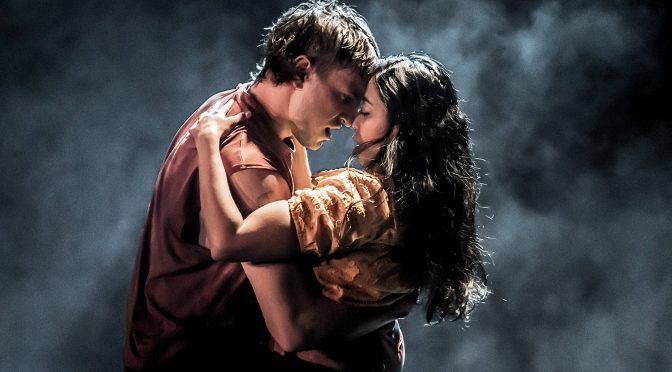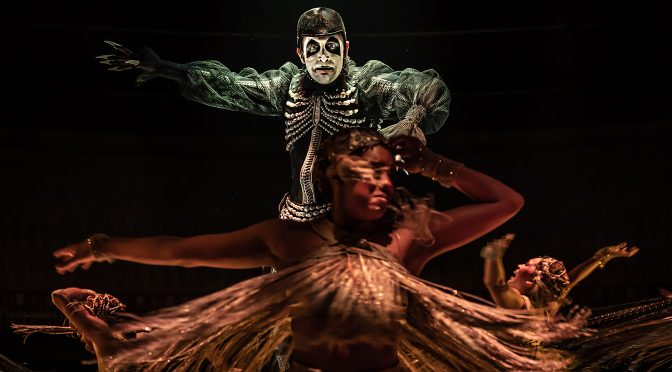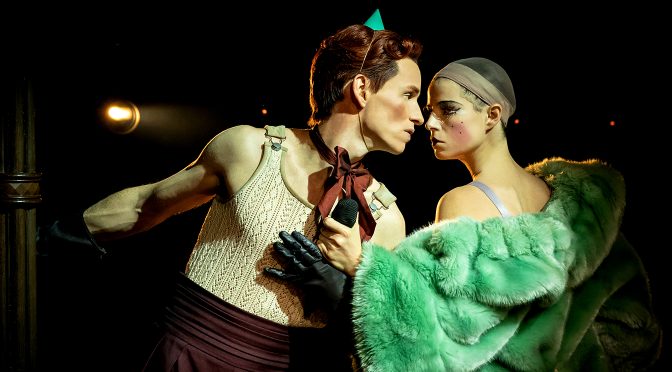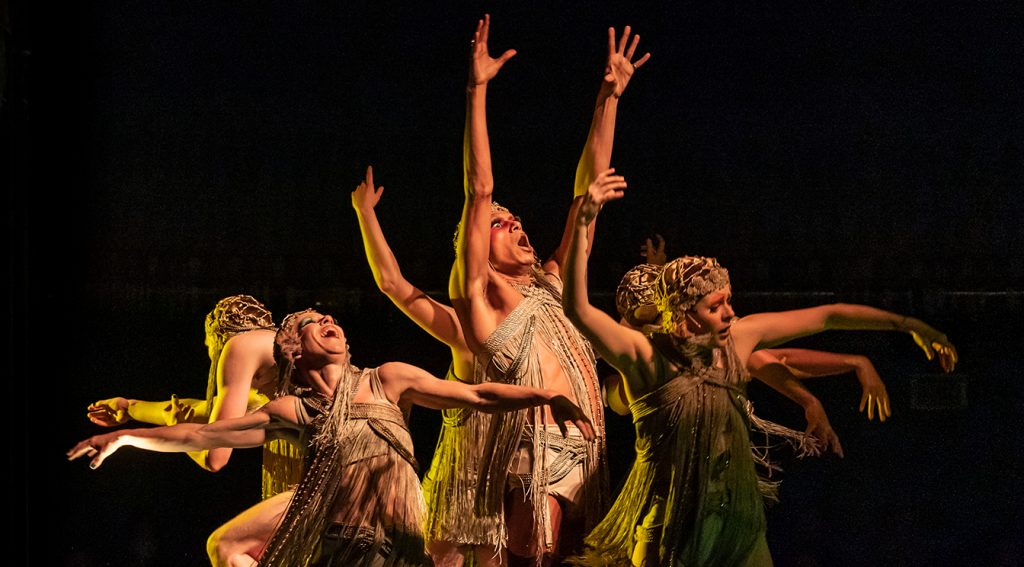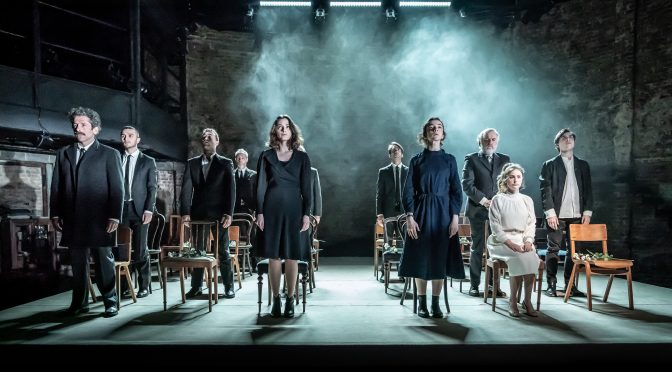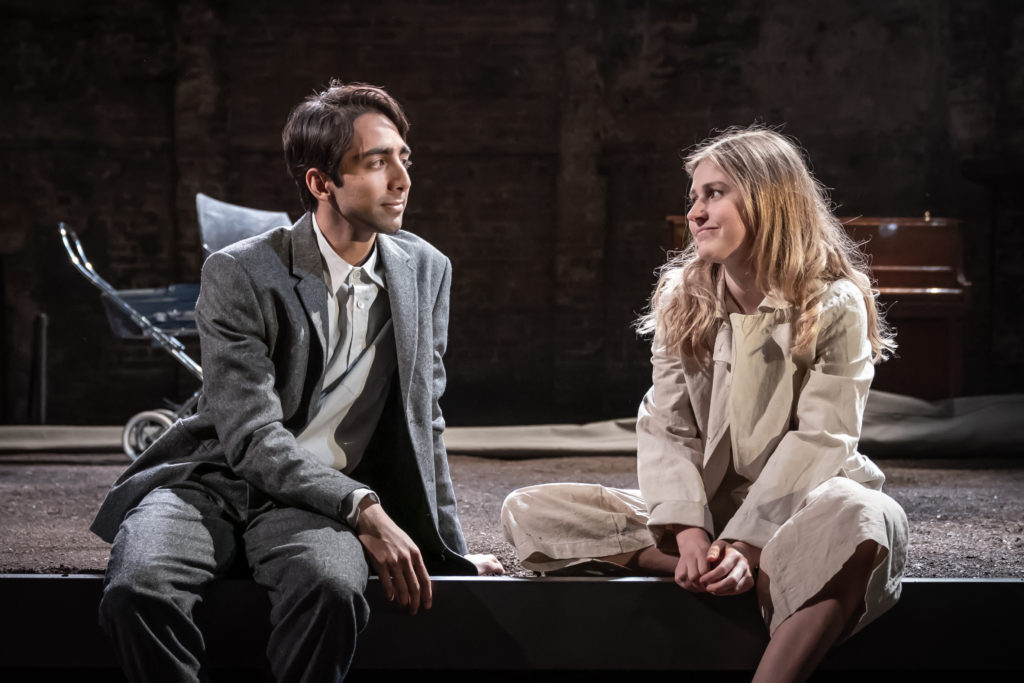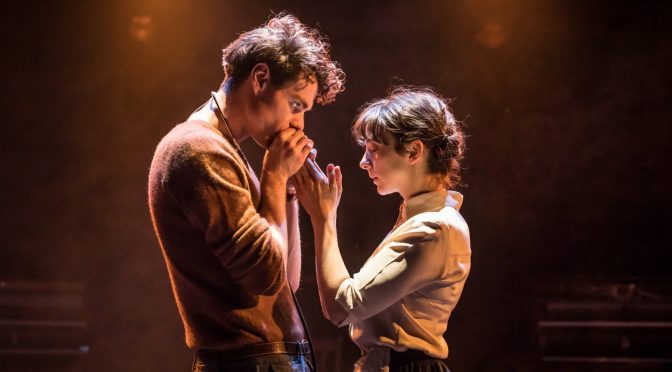The Almeida Theatre’s hit transfer of the Tennessee Williams classic boasts three Olivier Awards. And it could easily have earned another for director Rebecca Frecknall.
As with a previous production of a lesser-known Williams work, Summer and Smoke, Frecknall’s inventive, disciplined approach has startling results. The freshness and vigour are especially noticeable with a famous piece – this Streetcar is fast, loud, and shocking.
Speed first: the delivery here is astonishingly swift, not just the action but the lines. Blanche, played by Patsy Ferran, is especially skilled. The character’s long speeches are delivered as if they belong in a thriller. The production would feel rushed if everything weren’t so clear.
As for loud, there’s the musical accompaniment from Angus MacRae, written mostly for percussion and sure to give you a few jumps. The sound design (Peter Rice) is excellent – nothing is lost, despite a lot of cymbals. And there’s another source of volume – Paul Mescal – the actor who won one of those Olivier Awards.
Mescal’s Stanley shouts every line. It’s a tremendously physical performance with lots of running around. It is possible to feel sorry for Stanley (I’ve seen it in other productions), so you might find this portrayal less subtle than usual. Accusations about the man being an animal are emphasised and the character is very much the villain. When he hits and bullies, he enjoys it.
The violence against women in the play is Frecknall’s target. Stanley isn’t the only animal we see as he is joined by the other male performers who act like a pack. There is even the suggestion that Blanche is raped by this gang.
The trauma of Blanche’s marriage is highlighted from the start, creating immediate sympathy. But this production takes a harsh look at our heroine as well. Blanche doesn’t fool Frecknall, or Ferran, as the character’s wish to create a sense of magic is harshly exposed. You can be enchanted by, or suspicious, of Blanche, but here excuses and plans are blatant. Take the line “I want magic!” – Blanche screams it like a banshee.
To top all this, there’s an excellent Stella and Eunice (the upstairs landlord) who both enforce Frecknall’s focus on women in the play. Anjana Vasan has another well-deserved Olivier award for Stella – her passion for Stanley balanced by a concern for Blanche. And Janet Etuk makes her relatively small role of Eunice stand out. In solidarity with Blanche, the women form a trio in a way I haven’t noticed before. The insight, from an interpretation of the text that has conviction and vision, justifies that third award – for best revival.
Until 6 May 2023
Photo by Marc Brenner

